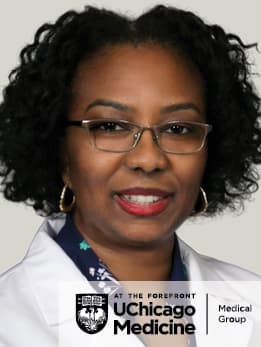When to see a doctor for common health complaints

“Should I go to the doctor?” is a common question we ask family and friends or type into a search bar as we Google our symptoms when we're feeling sick. Instead, Ebony N. Johnson, MD, MHA, a family practitioner, said your primary care physician can offer an expert opinion to help you determine the type of care you need.
“A lot of people don’t feel like they need to go to the doctor unless something is wrong,” Johnson said. “But not every illness has symptoms immediately. Primary care doctors like to see patients before they’re ill to help prevent them from getting acute or chronic illnesses.”
Johnson outlines some common complaints she hears from patients and offers advice about when to seek medical treatment for each.
Back or joint pain
Patients will frequently complain of a dull, chronic ache in their back or joints, Johnson said. Primary care doctors can recommend over-the-counter pain relievers, stretches, exercises and other remedies to treat mild pain.
Warning signs of a more serious condition that would warrant a trip to the emergency room include severe pain, fevers, chills, sudden weakness, numbness or tingling in the groin or thighs, and/or an inability to walk. If you have back pain after a fall or accident, she suggests seeking treatment from an urgent care or emergency department.
Cold and flu symptoms
If you have a high fever or you’ve been experiencing symptoms for more than five to seven days, go see your primary care doctor.
“We always recommend you come see us first, but if that’s not possible, at least try to communicate with your physician or their care team and they can advise you,” Johnson said.
If you’re experiencing high fevers paired with extreme fatigue or difficulty breathing, seek care from the emergency room.
Abdominal Pain or Stomach Upset
See your primary care doctor for dull, aching or chronic belly pain. Sudden onset severe pain, fever or blood in stool or urine might indicate a condition that needs immediate care at a hospital or emergency room.
“When you visit a walk-in clinic or emergency department, the staff will often tell you on your way out to follow up with your primary care physician,” Johnson said.
Rash
Seek urgent care if a rash is severely painful, draining or paired with a fever. Also seek immediate medical attention if the rash is affecting your lips or tongue. Other rashes, if they’re chronic or itchy, can be examined by your primary care doctor.
In addition to acute and chronic medical conditions, primary care physicians also offer immunizations and preventative health screenings and handle all concerns about general health.

Ebony Johnson, MD, MHA
Ebony Johnson, MD, MHA, provides the full spectrum of medical care to all ages and engages a diverse group of patients with her personal work ethic and community bonds.
